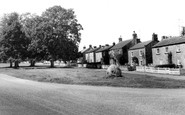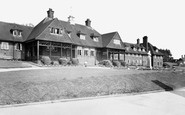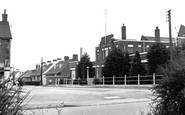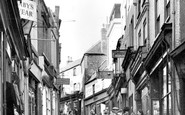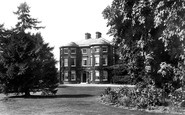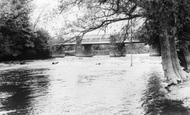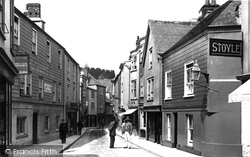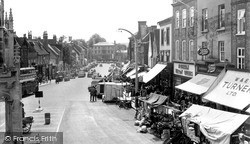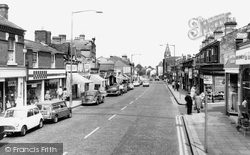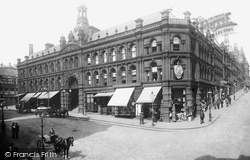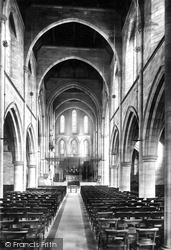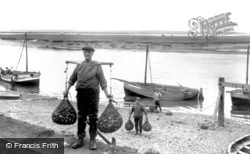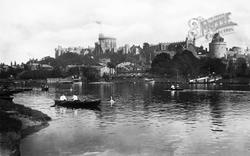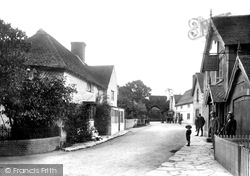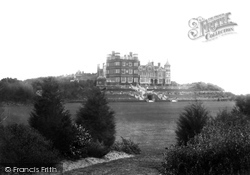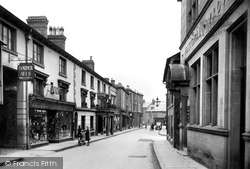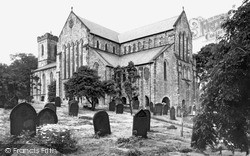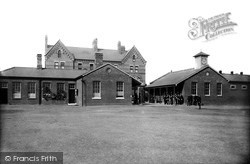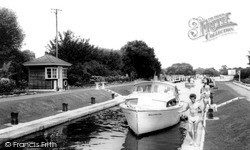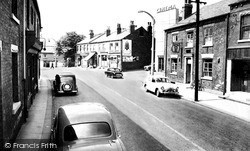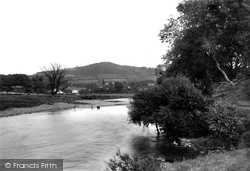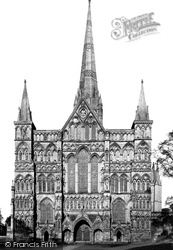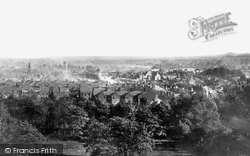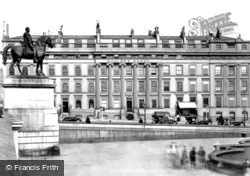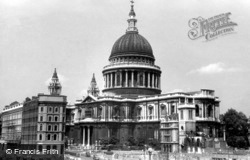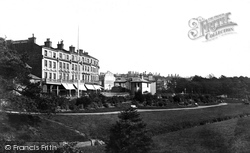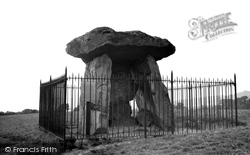Places
Sorry, no places were found that related to your search.
Photos
5 photos found. Showing results 821 to 5.
Maps
83 maps found.
Books
Sorry, no books were found that related to your search.
Memories
1,128 memories found. Showing results 411 to 420.
Ancestry
East Witton's interest to me began as it was the birthplace of my grandfather and his parents resided in Wast Witton Without (i found this through the 1901 census), though I cannot get any further back in time. I worked in nearby ...Read more
A memory of East Witton in 1890 by
Memories
I was in hospital from January 1963 for 6 months to have my right leg stretched, it didn't totally work, but it was in 1966/1967 when I had to have several operations for the other leg. Although it was my first time away from home everyone ...Read more
A memory of Alton in 1963 by
Tarpots
I remember the north side of the London road much as has been described by others with some differences, the last shop before the garage was Jones the butchers, owned by Mr Jones and run by his three sons, Roy, Owen and the third one ...Read more
A memory of Great Tarpots in 1945 by
Early Days In Filton
Although originally from Manchester my parents were living in Filton when I was born in Cheltenham in December 1941. My father, like the majority of men in that area worked at what was then the BAC. He worked at the Rodney Works ...Read more
A memory of Filton in 1940 by
Old High Street Summer Of 1966
The old High Street was a hive of activity especially in the summer months, I remember the Acropolis coffee bar which was run by a Greek family including Archie Aggro who was a very tough character and stood no ...Read more
A memory of Folkestone in 1966 by
My Years In North Marston
I lived in North Marston in the 1950s, at 25 Quainton Road My Grandfather Ezra Rawlings was a tailor. I remember bonfire night on the sports field, cycling down Church Hill, Christmas carols, Friday night youth ...Read more
A memory of North Marston in 1955 by
Betton Old Hall 1960s
My grandparents - George & Winifred Lowe - lived at The Black & White House, Betton (aka 9 Betton, Betton Old Hall) for many years (leaving in about 1977). My grandad was a gardener for Colonel George Wade of ...Read more
A memory of Market Drayton by
Esh Winning
I left Esh Winning with my family in 1963 when I was 5 or 6 for a new life in Staffordshire. We initially lived at North Terrace, which is no longer there and later 4 South Terrace. Like Ruth Hill, my father worked at Esh Winning ...Read more
A memory of Esh Winning by
The Rope Swing At The Leighton Bridge
I remember spending many a summer swimming at this spot. Then they seemed to be long hot summers but maybe that's the memory loss of an older man. I noticed that the rope was stiil hanging from the tree which ...Read more
A memory of Welshpool by
Not A Care In The World
If anyone were to ask me when I was most happy, I would have to go back some considerable time to those years spent in Wheatley Hill, more especially the late 1940s all of the 1950s and early 1960s. Truly magical ...Read more
A memory of Wheatley Hill in 1954 by
Captions
1,233 captions found. Showing results 985 to 1,008.
Totnes had a medieval wall around the centre, much of it still intact.
A large number of the buildings in the picture are now Grade II listed, but it is not likely that the unkempt state of the High Street in 1955 did much to foster civic pride.
It had already been popular with wealthy city merchants for a century or so, and much housing development had taken place along the High Street.
The cast iron frame contained two 60ft-high domes, and huge figures of Pomona and Flora stood over the arched entrance. This market was demolished in 1973.
The high arched ceiling is supported on slim pillars of pale stone, creating a light and welcoming interior. The pulpit is of alabaster and the screen of ironwork.
These heavily-laden fishermen use shoulder yokes to carry their shellfish, much as a milkmaid carries her buckets, paddling out of the shallows from their open boats, the 'Nell' and 'Armistice'.
However, much of what we see now owes more to the 1820s; at that time George IV expended the then fabulous sum of £1,000,000.
A feature of the scene is the limestone paving flags that neatly line The Street, and the trimmed trees forming an arch across the roadway. The Half Moon Inn (landlord W Teasdale), awaits customers.
The arch at the bottom of the terrace is a sheltered seating area.
The view is very much the same today, although the grand, colonnaded entrance to The Black Lion Hotel (centre left) has been demolished.
In 1908 the east end of the chancel was extended and the transepts added; the gradient of the site was such that the archi- tect, Temple-Moore, designed a structure supported on a round- arched
These barracks were built about three years after the Infantry Barracks, but the construction came under much criticism.
West of Sunbury and on the former Middlesex bank of the Thames is Chertsey Lock, near Chertsey Bridge, an austere seven-arch stone bridge of the 1780s by James Paine.
This is the shopping centre of Kippax, much changed on the left, but untouched on the right.
Certainly it is much loved by fishermen. The river has also been a popular play area for local children, as this late Victorian scene shows.
The Arndale House building is much the same, but the cinema has made way for the Cornhill shops, and beyond the canopy of the Town Hall extension are the new shops which have
For much of the 20th century, the flitches were supplied by Dunmow`s own bacon factory, which occupied a site near the now-vanished railway station.
These heavily-laden fishermen use shoulder yokes to carry their shellfish, much as a milkmaid carries her buckets, paddling out of the shallows from their open boats, the 'Nell' and 'Armistice'
Viewed from the west, the façade of the west front is dominated by the Great West Window and the Triple Arch Door.The west front of many cathedrals were intended to be showpieces.
Of the priory, however, little remained even in 1900 when this photograph was taken, save for the remains of the cloisters and a stone arch.
It was commissioned from Sir Francis Chantrey in 1829, and it was originally to go on top of Marble Arch, which then stood in front of Buckingham Palace.
Five years after the end of the Second World War, there was still much evidence of the severe bombing around the cathedral.
The fine tower and spire of St Peter's Church dominated much of central Bournemouth, until unkind planners allowed the construction of too many large buildings nearby.
There has been much debate about the age and significance of these four giant stones a mile north of the village.
Places (0)
Photos (5)
Memories (1128)
Books (0)
Maps (83)

